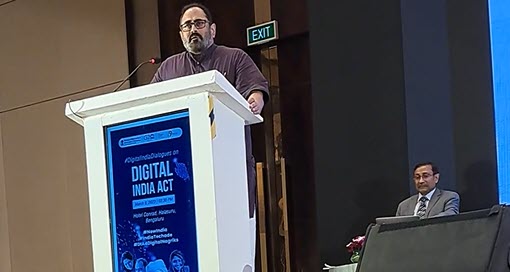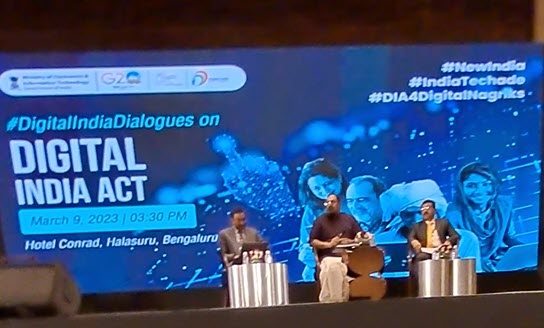A few months back, Naavi.org had started a discussion on “Shape of Things to Come” where several aspects of Data Protection Law was discussed through a series of articles. A total of 23 articles were published ending with “Cut paste approach or Zero based approach?..Shape of Things to Come-23″.
We also carried a list of 8 articles on Telecom Act ending with The New Telecom Act-8: Right of Way which is still in draft status.
The Government had at that time announced the intention of revising the ITA 2000 and introducing a new Act titled Digital India Act. (DIA). We had published 4 articles in this series ending with https://www.naavi.org/wp/digital-india-act-4-online-gaming/
Many sugestions have been made earlier also when T K Vishwanathan committee was working on the amendments. One such article was Suggestions on Modification of ITA 2008
Now, on 9th March 2023, the honourable Minister of State for IT, Sri Rajeev Chandrashekar (RC) has unveiled the contours of the new Digital India Act proposed to replace the current ITA 2000. Mr RC made a power point presentation outlining the “Proposed Digital India Act 2023” calling for suggestions to be sent to the Ministry.
We can therefore continue our discussions on the DIA series on the basis of this new draft. A copy of the presentation made by Mr RC is already available here:
One of the first observations that can be made is that DIA is set to be “Principle Based” and not “Prescriptive”. This indicates that the Act would focus more on the regulation of the industry and restrict its penal provisions to only Civil Wrongs. It is likely that the entire Chapter XI of ITA 2000 may be moved as an amendments of IPC. This incidentally explains the logic in the new DPDPB2022 dropping the criminal offence of “Re-identification of Anonymized Information” as well as the amendments sought to be made to ITA 2000 through the JanVishwas Bill. (yet to be passed).
It is perhaps a good idea to place all Cyber Crimes as part of IPC. At present, any crime under IPC where an Electronic Document is an instrument of crime or a target of crime was being defined as a “Cyber Crime” along with specific crimes defined in the ITA 2000.
But Police were often confused on invoking proper sections of ITA 2000 since the names of Cyber Crimes given by the Tech Industry need decyphering with the “Intention based violations” that was the basis for invoking IPC. The legal education system was also not geared to teach ITA 2000 in as much detail as it was necessary for lawyers. These things may change for the better now since Cyber Crimes may become part of IPC.
(P.S: The movement of Chatper XI of ITA 2000 to IPC is an expectation and we need to watch out for the next draft of DIA for confirmation).
…Discussions continue









